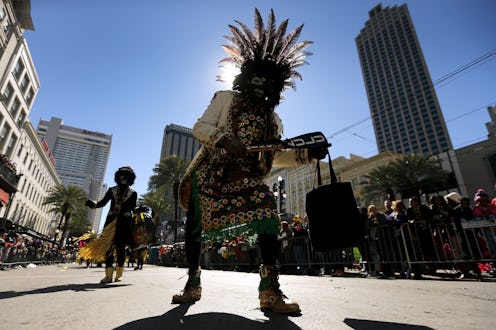News
Is Louisiana's Primary Winner-Take-All?
On Saturday, Louisiana and three other states will vote in the Republican primary for president. With Donald Trump on the verge of clinching the nomination, the rest of the Republican candidates are surely focusing the intricacies of each state’s delegate math and the manner in which each state allocates its delegates. So, is the Louisiana primary winner take all?
In short, no, it isn’t. In Louisiana, delegates will be distributed proportionally — for the most part. There’s a catch, though, that could result in some of Louisiana’s delegates becoming de facto superdelegates at the convention. To explain this, we have to get into the thorny business of delegate allocation rules (yay).
Louisiana is worth 46 delegates. Twenty-one of them will be allocated proportionally, full stop. Easy-peasy. But the other 25 delegates — the “at large” delegates, as they’re officially called — are subject to a threshold of 20 percent. This means that any candidate who doesn’t get at least 20 percent of the statewide vote will not win any of those at-large delegates at all.
At the same time, no candidate — even the ones who do reach 20 percent — is allowed to take home more than their share of at-large delegates. For example, if Trump wins 42 percent of the vote, he can only take home a maximum of 42 percent of the at-large delegates.
This all sounds very wonky and dry — because it is — and yet these rules have one very important implication. If any candidate doesn’t get at least 20 percent of the vote, their share of at-large delegates becomes unbound, or “super.” That means they can vote for whoever they want at the national convention, and given the rising likelihood of Republicans having a brokered convention this year, that's a big deal.
This is complicated, so let’s look at how it would play out if the statewide vote matched up with the most recent polling in Louisiana. Here’s what RealClearPolitics’ polling average shows:
- Donald Trump: 42.5 percent
- Ted Cruz: 23.5 percent
- Marco Rubio: 15 percent
- John Kasich: 7 percent
- Ben Carson: 5.5 percent
In this scenario, only Trump and Cruz clear the 20 percent threshold, and so they’re the only ones eligible for Louisiana’s 25 at-large delegates. This means that 42.5 percent of the at-large delegates would go to Trump, 23.5 percent of them would go to Cruz, and everyone else would get nothing. In real terms, this means that Trump gets 11* delegates and Cruz gets six.
But wait — that still leaves eight at-large delegates unaccounted for. According to Louisiana’s rules, those delegates simply become unbound, or "super." They can vote for whoever they want at the convention, regardless of how Louisiana has voted.
In totality, Louisiana’s system is good news for the Republican candidates not named Donald. Trump is leading the field, and if the state was winner-take-all, there’d be a chance that he could win every delegate in the state simply by getting a majority of the vote. But because the state awards delegates proportionally, there’s no way he can pull this off unless he literally gets 100 percent of the vote. Furthermore, the possibility of unbound delegates emerging from the state's primary offers some hope that the non-Trump candidates will be able to keep the Donald from winning the 1,237 delegates he needs to clinch the nomination.
By the way, every state has its own set of byzantine delegate rules. The Republican National Committee will have a fun time unwinding them at the convention in July.
*It would actually result in 10.7 delegates for Trump and 5.9 for Cruz, but Louisiana GOP rules state that in these situations, the number is rounded up.
